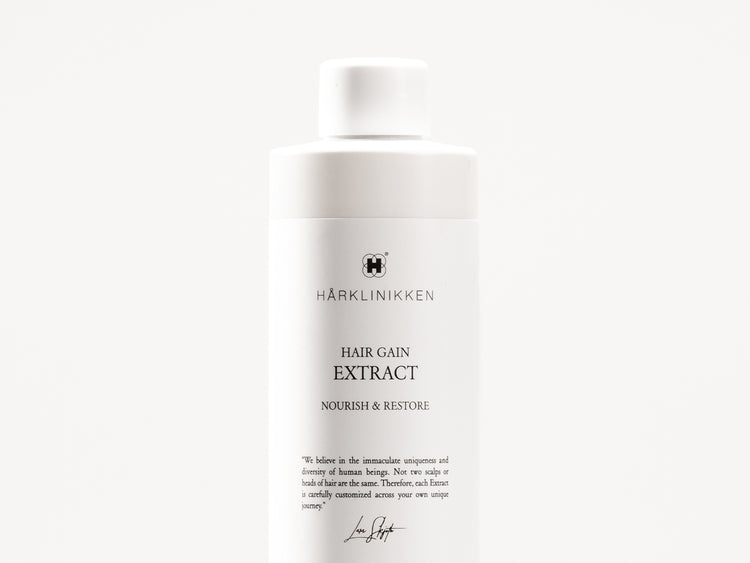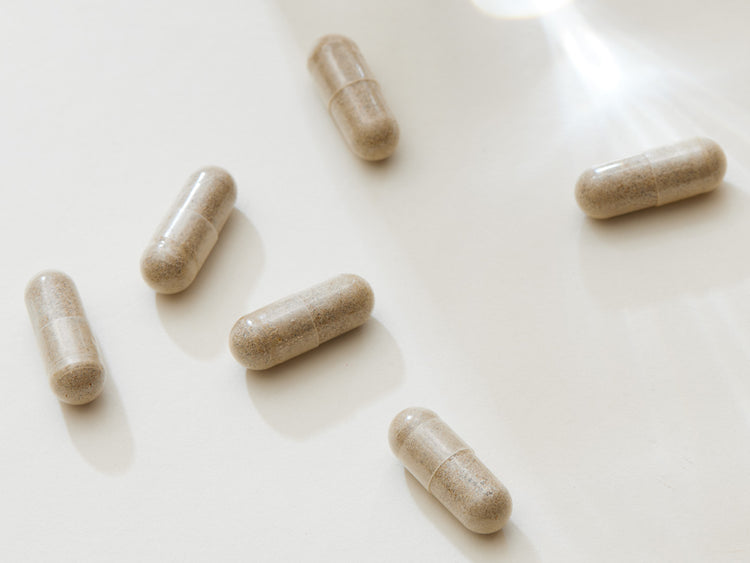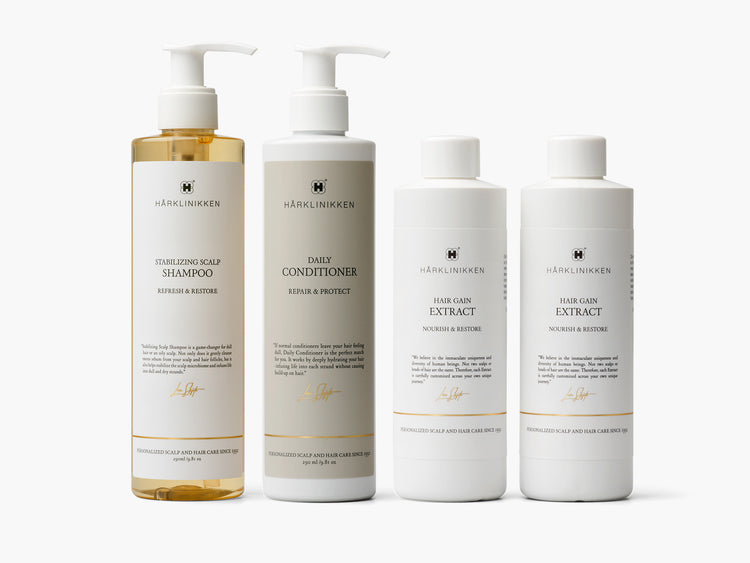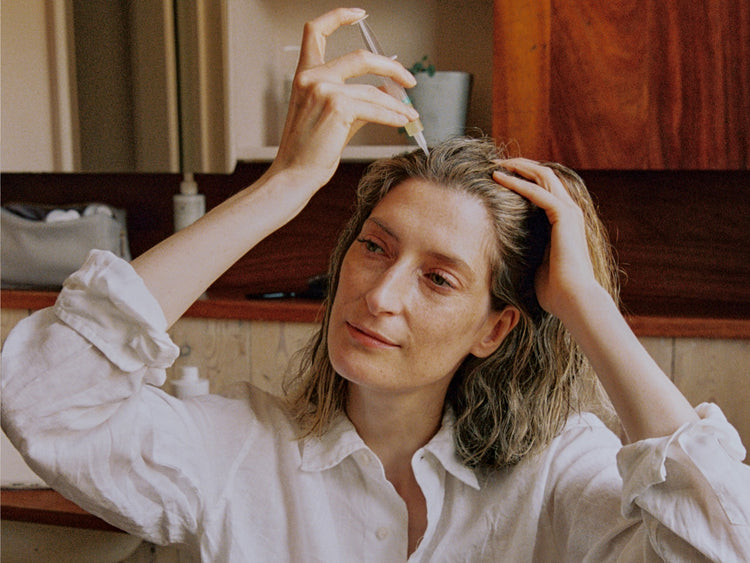The list of scalp and hair health myths is never-ending, and we hear – and debunk – many of them every day in our clinics. Many theories floating around pertain to hair hydration; something that’s particularly important during winter. From shampooing frequency to identifying dry scalp, who should use hair masks and more, we’re revealing the truth about hair hydration.
MYTH: Shampooing frequently dries out hair
TRUTH: Shampooing frequently is crucial for optimal scalp health, as it removes buildup from sebum, dead skin cells, product, pollutants, dirt and more. But shampooing with the wrong kinds of shampoos (those containing SLES, SLS, parabens and other problematic ingredients) that potentially could cause reactions to scalp and dry out your hair. Our shampoos are formulated with safe ingredients that not only cleanse your scalp effectively but also protect your strands from becoming dehydrated.
MYTH: Dandruff is caused by dry scalp
TRUTH: Often self-diagnosed incorrectly, dandruff and dry scalp are actually different conditions – though both manifest as flakes on the scalp. Dandruff (also known as Seborrheic Dermatitis) is the shedding of dead skin cells and is caused by a fungus called malassezia, which thrives on sebum and warm, damp conditions. Dry scalp is typically due to dehydrated skin, which can be caused by different factors – including harsh shampoos and an infrequent cleansing routine.
MYTH: Hair masks only work on dry hair types
TRUTH: When properly applied, our Hair Mask works for all hair types – including oily hair. Simply distribute a small amount if you have fine or oily hair, and a larger amount for hair that’s dry, colour-treated, chemically processed, curly, wavy or coily. Additionally, we would avoid DIY hair masks. Although they might be tempting to experiment with, the truth is making your own products means risking contamination and lacking proper preservation – potentially causing damage to your strands.
MYTH: Oily hair doesn’t need conditioner
TRUTH: All hair types need hydration, albeit in different amounts. Well-hydrated hair is softer and more flexible, which means it’s more resilient against damage, breakage and split ends. But it’s crucial to treat your hair with high-quality products (applied properly) to ensure it doesn’t end up covered in residue or looking drab and dull. If you have oily or fine hair, we recommend using our Weightless Conditioner, which is light and leaves hair hydrated but not weighed down.
MYTH: Oils are hydrating
TRUTH: Oils are important when it comes to hair hydration, but they don’t provide hydration itself. We use various plant-based oils in our products (such as olive, avocado, abyssinian, argan and sunflower seed oil) but these ingredients are emollients. Emollients not only help protect your strands, but they also aid in moisture retention – essentially working to trap hydration from other ingredients in your hair.

Unsure where to start?
We only accept candidates who we believe we can help, which is why our online Hair Assessment is the best place to start. Based on your results, you will either qualify for immediate treatment or we will organise a consultation.






